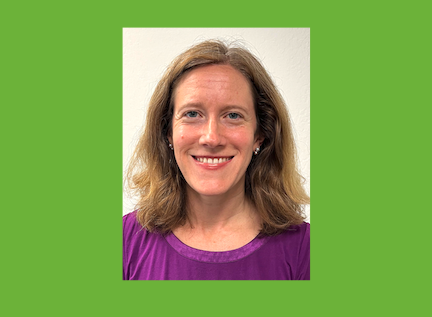
BY BRADEN CARTWRIGHT
Daily Post Staff Writer
Palo Alto school board candidate Alison Kamhi says she’s all about the safety of children. It’s what she does for her day job as an attorney for the Immigrant Legal Resource Center in San Francisco, and it’s how she got involved with the school district broadly, getting involved in gun safety.
On the school board, Kamhi wants to invest in mental health and special needs services and to address bullying. “When I think about bullying, I think about adults too … It’s all about setting expectations,” Kamhi said in an interview. “We set expectations that come from the school, from the community, from our elected leaders, about how we want our kids and families to behave.”
Kamhi also wants to look at a district-wide policy for banning cellphones in classrooms. This would help so teachers don’t have to act as police officers, taking away from their teaching, she said.
Kamhi, 43, is one of five candidates running for three open spots on the board.
She’s on the board for Palo Alto Community Child Care, a nonprofit that runs after-school programs at 11 elementary schools. She’s also the co-chair of gun violence prevention for the Palo Alto Council of PTAs.
At Back to School Night, Kamhi handed out fliers about storing guns safely, and she helped write a blurb for principals to read about preventing gun violence.
Some parents said they thought that no one in Palo Alto owns a gun, while other parents said they regularly take their kids hunting, Kamhi said.
Kamhi is from Tennessee, where a lot of people have guns, and said she fully believes in the right to ownership. But she wants to make sure people have information to store their guns safely, with ammunition kept separate.
On the board, Kamhi said she would “institutionalize that community education,” so information regularly goes out about safe storage of guns.
Kamhi also wants to make sure the district is clear in its communication — whether it’s about math advancement, reading curriculum, after school programs, Ethnic Studies or where special needs students are located.
The average parent should understand why decisions are being made, when they can weigh in and what the options are for reversing a decision, she said.
“Withholding information creates a lot of the problems we’re talking about, creates this mistrust and suspicion,” Kamhi said.
Kamhi said she has experience with transparency. She wrote a manual on the Freedom of Information Act, which she’s used as an attorney to get information from the federal government about the immigrant children who she’s represented in court.

Alison is 100% correct. The truth is that safety is sorely lacking in Palo Alto public schools, and many of the adults in the administration are bullying everyone else (front line employees, parents, even students).
[Portion removed — Terms of Use violation]
You can also look up recent lawsuits against the District and see negligence which harms students (one about a playground that was left unfixed and injured a child; another about the District not properly watching a child who got seizures (which they were legally required to do) – the child had a seizure, wasn’t given medication, and the child’s health suffered greatly as a result). Anyone who has sued PAUSD knows it’s a VERY uphill battle, and their lawyers are ruthless – no one would sue unless VERY wronged.
The Editorial board of the Post was dismissive of Alison’s safety platform. That’s a shame, because she’s correct that a focus on safety is sorely needed.
Alison Kamhi is right on target with her concerns for our children. Students cannot learn unless they trust their environment and feel as if they belong. The safety issues addressed by Alison are far-reaching, including the problems of bullying, the sometimes inadequate responses to mental health needs, and student commuting concerns.
Parents need to be able to send their children to school and entrust the system with their wellbeing. Students who feel safe, supported, and acknowledged are those who can thrive academically. Alison is determined to remove the roadblocks to student success.
I’ve said it before, Kamhi is running for the wrong office. She sounds like she’s running for state assembly or Congress with her focus on guns. The school board’s main priority is the budget, yet Kamhi is silent on funding priorities or cuts to the school budget. The other priority is in supervising the superintendent. What are her thoughts on Don Austin?
On the issues she does discuss, she is wrong. Cell phones can be a valuable tool for looking up alternative viewpoints on the Internet that most teachers are clueless outside the mainstream narrative.
On guns, storing ammo separate from guns negates any effective use of the gun for defensive purposes. If an armed burglar enters your home and you have to spend minutes unlocking the ammo and then loading the gun, it could be too late.
On curriculum, how about transparency on what each individual teacher in the school district is teaching inside the classroom…would Kamhi favor that kind of transparency?